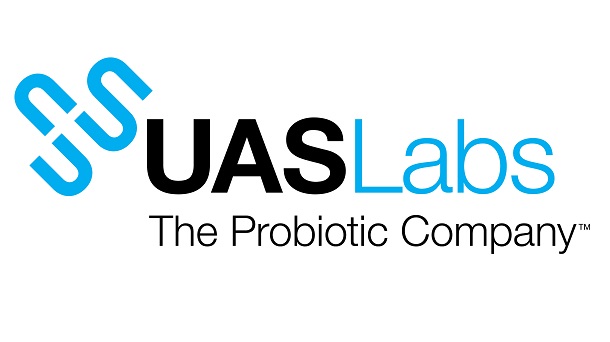Promotional Features
What it takes to make heart healthy functional foods: The story of LRC
The probiotic sector has long seen condition-specific strains backed up by data from gold-standard clinical trials as central to its future. Yet, to date such strains remain an idea more discussed than realized. Heart health strain Lactobacillus reuteri NCIMB 30242 (LRC) is an exception. The rise of the probiotic has created both a blueprint for strain development and multiple opportunities to improve heart health through yogurts, drinks and other functional foods.
LRC has come through a series of heart health clinical trials and other studies that demonstrated its ability to act on cardiovascular biomarkers and potential to be included in a range of functional foods. Now, the owner of LRC, UAS Labs The Probiotic Company, is looking to license the strain by channel around the world.
UAS Labs envisages extensive opportunities for LRC. Having already placed LRC capsules in the US food-drug-mass and health food store channels, UAS Labs is now seeking to add the strain to foods including yogurts, fruit juices, chocolate, cheese and soy-based beverages. The plan is underpinned by research into the strain and the benefits of delivery via functional foods. LRC has been tested in two randomized controlled clinical trials — and a third is underway — giving it a claim to the title of most effective and clinically-documented heart health probiotic strain.
Developing a heart health probiotic
The story of LRC begins at Micropharma, a Canadian company that UAS Labs acquired in 2014. The motivations for the deal relate to what makes LRC different. In LRC, UAS Labs CSO Dr Greg Leyer saw a textbook example of how to identify, develop and validate an effective, condition-specific strain. Most importantly, the development process led to a strain supported by nonclinical and clinical data, both on its efficacy and potential for use in functional foods.
LRC’s development was different from day one. Rather than screen lots of strains in search of any probiotic qualities, Micropharma set out to find bacteria with a particular quality, namely elevated activity of bile salt hydrolase, an enzyme involved in cholesterol metabolism. After screening more than 100 strains, Micropharma identified LRC as having favorable probiotic qualities and producing high levels of the enzyme. Optimization further boosted its activity.
The value of this approach to strain discovery and development was demonstrated in a series of randomized controlled clinical trials. One study randomized 114 people at multiple trial sites to receive yogurt loaded with either LRC or no additional probiotics.1 The other clinical trial gave either LRC capsules or a placebo to 127 subjects.2
Levels of low-density lipoprotein (LDL) cholesterol in the treatment arm of the yogurt study were supported at healthy levels when compared to placebo. Subjects who received LRC in capsule form saw their LDL, also known as bad cholesterol, supported at healthy levels, again when compared to placebo. Both trials also recorded healthy levels of other biomarkers of cardiovascular health, such as apolipoprotein B100, total cholesterol, non-high-density lipoprotein (non-HDL) cholesterol and the ratio of LDL to HDL.
Taken together, the results suggest LRC can support the body’s natural ability to eliminate unwanted cholesterol while also maintaining the normal amount of cholesterol the body produces.
The R&D program also generated data on other biomarkers less directly associated with heart health. Notably, levels of the circulating form of vitamin D increased by almost 25%, a significant rise that outstrips the changes typically achieved by probiotics. Given the incidence of vitamin D deficiency and its implications in a range of metabolic conditions, the data suggest LRC could play a role in improving health outcomes outside of the cardiovascular sector. A gastrointestinal symptom survey also linked LRC to improved digestive health.
Supported by these data, LRC has become cardiologists’ preferred probiotic, according to a 2015 survey of more than 200 board-certified cardiologists. Now, UAS Labs wants to build on this platform by making LRC available in a range of functional foods in markets around the world.
Creating heart healthy functional foods
The plan to use LRC to create heart healthy functional foods is supported by data suggesting the strain is suitable for use in such products. Not all probiotics have such formulation flexibility. A probiotic strain can be effective when it is freeze-dried in capsule form, but ill-suited for use in foods. Issues with quality, quantity and storage can render probiotics ineffective or non-viable in foods. Equally, some strains affect the taste and texture of the food, making it undesirable.
LRC has come through multiple tests suggesting it is unaffected by these shortcomings. The first randomized controlled trial showed LRC supports healthy levels of cardiovascular health biomarkers when formulated in a yogurt. Data from the yogurt clinical trial were comparable to those generated by the study of LRC in capsule form.
Subsequent formulation studies found LRC is a good candidate for addition alongside the starter culture or after the yogurt has been through this initial process. Adding a probiotic to the starter culture enables formulators to use less of the strain — as it grows with the yogurt — but some formulators prefer to add it later. LRC gives companies both options.
UAS Labs has also looked at how LRC copes with the commercial storage conditions of yogurts and consumption in this formulation. One study showed levels of LRC remain high throughout the shelf life of yogurts when kept in real-world conditions. Another project found LRC, a hardy strain in capsule form, survives simulated gastrointestinal transit even better when formulated in yogurt. This performance is the result of the extra buffering from stomach acid provided by the yogurt.
Buoyed by these findings, UAS Labs has looked at how LRC copes with being formulated into fruit juices and soy-based beverages. As fruit juice is acidic and soy-based beverages are alkaline, these formulations present contrasting challenges to probiotic strains. LRC coped well with both environments.
Over 60 days in a fruit juice with a starting pH of 3.9, LRC experienced minimal losses, suggesting the formulation is commercially viable. Stability in the soy-based beverage was better still. Potency in the soy-based drink was virtually the same after 60 days as it was at the start of the study. Importantly, strain survival rates in both formulations were comparable regardless of whether the product was kept at 4 or 8 degrees celsius. Some commercial fridges are 8 degrees celsius.
Partnering with UAS Labs
UAS Labs sees the data as supporting the use of LRC in yogurts, fruit juice and soy-based drinks, and it is looking to work with food and beverage companies to help them create heart healthy products. The scope of this plan extends beyond the food and drinks tested to date. UAS Labs also views LRC as a good candidate for formulation into chocolate, cheese, frozen dairy desserts and fats and oils.
The company’s belief in the far-reaching potential of the strain is validated by its experience and expertise. UAS Labs was founded in 1979 and has focused solely on probiotics ever since. In recent years, the company has made investments in its manufacturing and R&D capabilities.
It is this mix of experience and expertise that led UAS Labs to single out Micropharma and its LRC strain as unusual and notable. The same characteristics have driven UAS Labs as it has built on the platform created by Micropharma to position LRC as a strain suitable for incorporation in a range of functional foods in markets around the world.
Now, UAS Labs is looking to work with food and beverage companies with an interest in heart healthy functional foods to write the next chapter in the development of LRC.
References
1. Jones ML, Martoni CJ, Parent M, Prakash S.: Br J Nutr. 2012;107: 1505–1513.
2. Jones ML, Martoni CJ, Prakash S.: Eur J Clin Nutr. 2012;66: 1234–1241.

